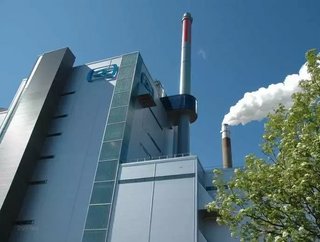Smurfitt Kappa eyes emission cuts and streamlined supply chain

Global packaging leader Smurfit Kappa has introduced innovative new trucks which have increased capacity and slashed CO₂ emissions by 20%.
The vehicles, which have been pioneered at the Piteå Paper Mill in Sweden, can handle heavier loads, resulting in a 30% reduction in the number of trips annually.
Smurfit Kappa, which has amassed a wealth of experience in supply chain optimisation through its SupplySmart service, examined how it could streamline the Piteå supply chain.
A team of logistics and sustainability specialists used this industry-leading expertise to optimise the supply chain and make it more efficient and sustainable.
They invested in vehicles with extra axles to increase capacity and modified floors to adapt to different loading systems.
Best-in-class Euro 5 engines have significantly reduced the emissions already and a new bio fuel (HVO100), which allows for a reduction of fossil CO₂ emissions by up to 90%, will be introduced in the coming weeks.
The ships used in the supply chain were also optimised by a €3mn investment in technology that cleans the emissions of sulphur.
SEE ALSO:
-
DHL and Ford unveil their first jointly produced electric delivery van
-
Global IT consultancy Capgemini unveils significant carbon footprint reduction
Earlier this year, Smurfit Kappa announced in its 2016 Sustainability Development Report that it has already cut CO₂ emissions by 23%, well on the way to meeting its 2020 target of 25%.
The Piteå Paper Mill produces 700,000 tonnes of kraftliner annually which is the packaging material of choice for rapidly growing sectors such as ecommerce.
Speaking about the logistics changes, Per Sward, CEO of the Piteå Paper Mill, said: “This is a very positive step for the mill. The optimised trucks and ships have not only made us become even more efficient, they are also benefiting the wider community.
“The Piteå Paper Mill has a long history in the area and this investment in logistics will significantly reduce CO₂ emissions for years to come.
“We believe that through taking a sustainable approach to every aspect of our company, products and processes, we become more efficient. This is certainly true of the new logistics system.”






